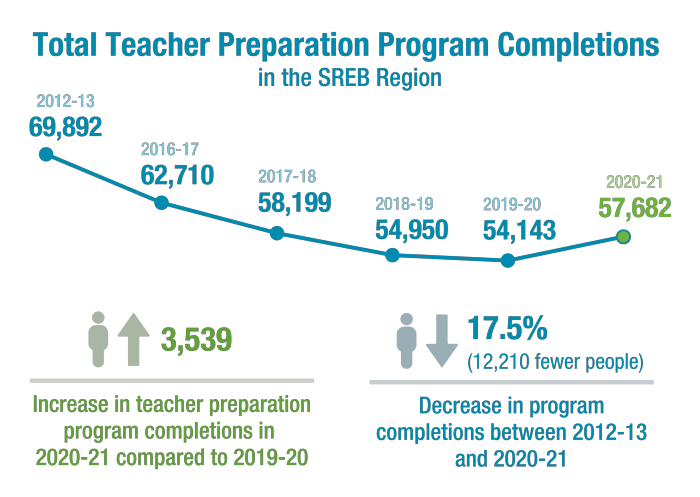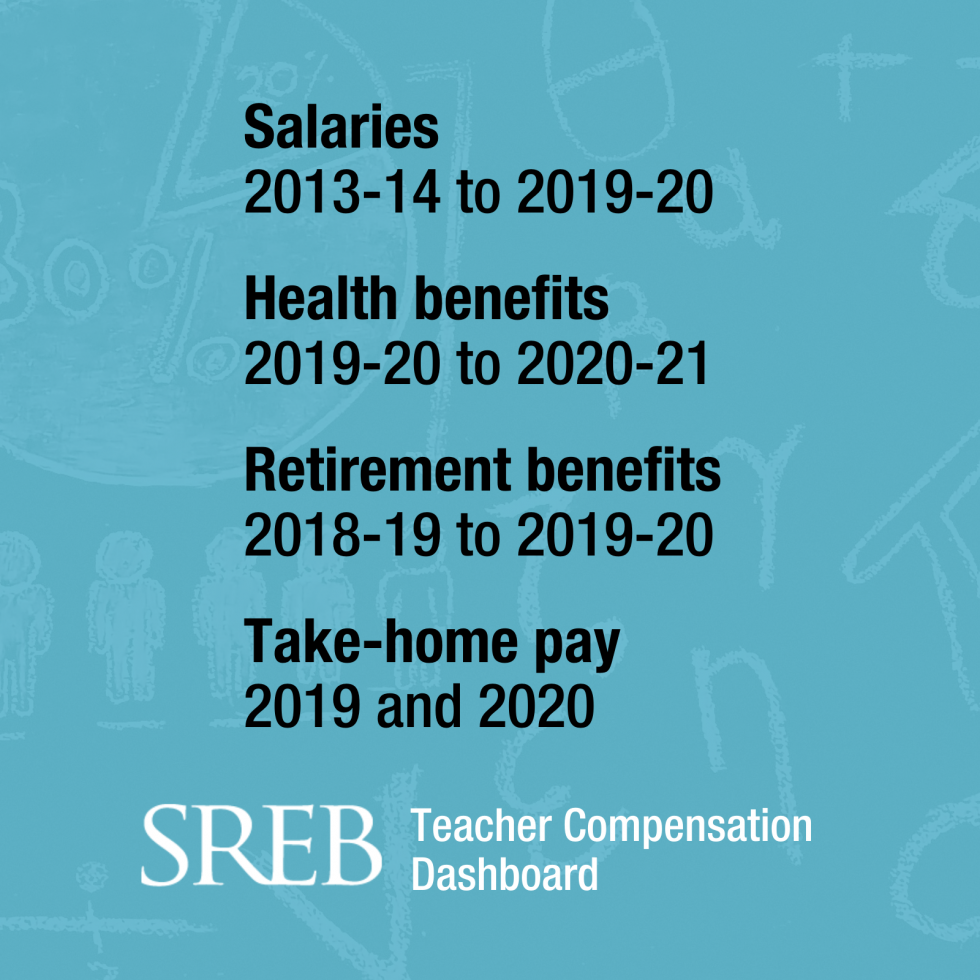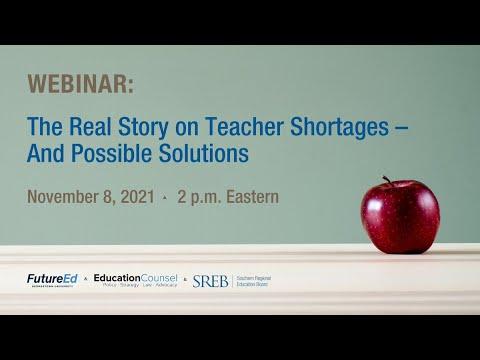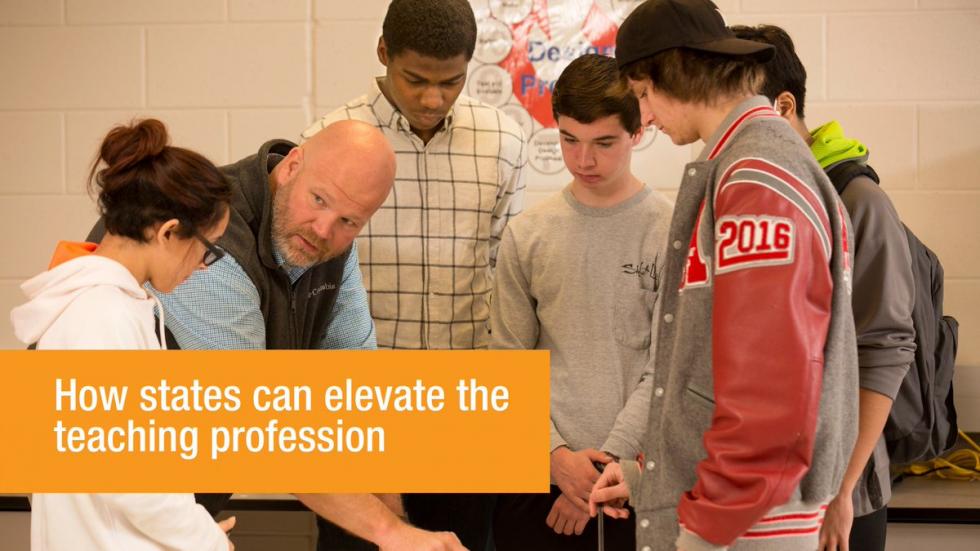Blog: Teacher Policies
Perspectives
SREB's Teacher Workforce Blog
From shortages to solutions, thoughtful articles on policy and data that affects educators, from SREB staff and guest authors.
Investing Early in Teachers Pays Dividends for Everyone
In this post, we look at why investing early in teachers leads to great results for everyone involved. Through data and research, see how investing in teachers leads to things like higher retention.
What SREB’s Teacher Workforce Data Really Tells Us — And Why It Should Matter
In this post, we look at what the insights in SREB’s P-12 Educator Workforce Data portal actually mean. From examining the early childhood system strain to teacher shortages and more, reading this post will give you a better understanding into the current educator workforce.
How to Create Strong Teacher Induction
Effective induction programs are a key part of keeping great teachers. This post explores ways to create a strong induction program.
Why Teacher Induction Is the Missing Link in Ed Prep
And How CarolinaTIP Is Getting It Right
Teacher induction is an important part of school leadership, but it can be difficult to know how best to run your induction program. In this post, we look at how CarolinaTIP’s induction program is doing things so well.
Teacher Induction Essentials
For Every School Leader
Keeping the teachers you have is more cost-effective than hiring new teachers each year. That is just one reason that teacher induction is so important. In this post, we talk about teacher induction essentials that every school leader should be using.
From Preparation to Practice:
Early-Career Teacher Experiences in Three Southern States
The Southern Regional Education Board and partner researchers at Vanderbilt University conducted interviews with 30 new teachers in three states in fall 2024 as part of our third study together on the teacher workforce. This post features five novice teacher profiles to highlight the complexity of beginning teachers’ journeys from preparation to teacher-of-record. These profiles reinforce the study’s key findings on the need for new teachers to feel supported in their roles through a comprehensive system of support from preparation to placement to their first years in the classroom.
How Modernizing Teaching Will Recruit More Educators
It’s no secret that fewer individuals are pursuing teaching as a career. SREB reports on this data annually. It’s on our minds so much so that SREB recently pursued research around this topic with Vanderbilt University to study teacher labor markets, Gen Z’s interest in the profession and their feedback on teacher working conditions.
Cultivating Talent
High-Quality Induction Programs Support and Retain Novice Teachers
Natasha is a first-year teacher who was hired on a provisional certificate to teach fifth-grade math and science in a high needs school. She is a career changer with 20 years as an engineer. The last time she was in a fifth-grade classroom was when she was 11 years old. She started in the fall with no experience writing lesson plans or managing large groups of children. Natasha is working toward her full certification by completing a master’s degree in elementary education.
Generation Z Isn’t Interested in Teaching
Why Not?
As a graduate student in 2021, I interviewed Ms. Sharpe for an assignment in my Qualitative Research II course. Ms. Sharpe, a Black woman, member of Generation Z, and a fourth-grade teacher two years removed from her educator preparation program, expressed frustration, angst, worry, pride and hopelessness.
Education Data Doesn’t Have to Be a Needle in a Haystack
In the data-driven age, leaders constantly turn to data to help prevent or solve problems in education. As problems such as teacher shortages and student learning loss persist in education, could a lack of data be hindering educational leaders from reaching successful outcomes?
Paying Teachers Less for Summers Off
Do teachers really get more leave than other professionals?
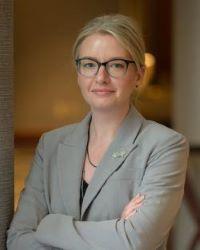 A common comment I hear in my work researching the teacher workforce and its challenges is that “teachers only work 10 months per year, so they should make less money.”
A common comment I hear in my work researching the teacher workforce and its challenges is that “teachers only work 10 months per year, so they should make less money.”
In my view, compensation should be about the level of skill and knowledge required, the impact of the position and the growth of the employee. In addition to the market rate, these are the typical elements factored into compensation for professionals.
Teacher Pay Data: Reviewing trends and a teacher’s spending power in different areas of the South
Let’s give our teachers what any employee needs to be successful
Teacher shortages, workforce issues demand bolder solutions from states
By Stephen Pruitt, SREB President
Across the SREB states, many leaders are realizing the need for action on one of the biggest challenges in education: ensuring every student has a well-prepared teacher in every class, every year, no matter where they live.
I know personally how teachers can impact students’ lives. I started my career as a science teacher in Fayette County, Georgia, and I’m still humbled when former students tell me how I helped them become who they are as adults and find satisfying careers to pursue.
To See Teacher Compensation, Look at More Than Salaries
Teacher Pay Is Increasing. So Is the Cost of Benefits
This spring, the National Education Association released its annual teacher pay analysis a bit earlier than usual. This data is widely used across the nation as the main source for average teacher salaries by state. The headline for 2021: Teacher salaries are going up by an average of 1.5% across the nation, and average spending per pupil is up 5%.
This is fantastic news ─ no bones about it.
It’s also not the whole story.
WHAT WE KNOW ABOUT TEACHER SHORTAGES — AND HOW STATES, DISTRICTS CAN RESPOND
What do we know about teacher shortages in each state and across the country? How severe are they? What has caused the shortages — and how can leaders help solve them?
SREB joined leaders from EducationCounsel, FutureEd at Georgetown University, and state and local school systems for an online event Nov. 8 to answer these important questions. (See the video of the event at the end of this story.)
How States Can Elevate the Teaching Profession
Restoring respect and value
Good schools depend on excellent teachers, in every classroom. SREB is helping states examine and redesign state policies to elevate the profession and end teacher shortages.
I want my daughter to have the best teachers every school year. What parent doesn’t? Yet in too many schools, the only teachers available are uncertified or brand new, with no experience.
Impact of teacher shortages in most states far-reaching
 When students don’t have good
teachers, it can affect their cognitive growth — and over time
can result in measurable economic loss.
When students don’t have good
teachers, it can affect their cognitive growth — and over time
can result in measurable economic loss.
Teacher shortages, therefore, are the type of crisis that “can put an entire society at risk,” said Nicole Smith, the chief economist and research professor at the Georgetown University Center on Education and the Workforce.
Respect (and Pay) Our Teachers, Or Lose Them
 As state education budgets suffer during this pandemic, the teaching profession simply cannot absorb the kind of blow it took in the last recession. Teacher salaries dropped substantially then, and today, a decade later, they’re still lower on average than before the Great Recession. Morale has dropped, too, according to surveys, and turnover has risen as budgets and teacher supports decrease. We can’t afford to repeat the same mistakes in this current climate, another recession aggravated by COVID-19.
As state education budgets suffer during this pandemic, the teaching profession simply cannot absorb the kind of blow it took in the last recession. Teacher salaries dropped substantially then, and today, a decade later, they’re still lower on average than before the Great Recession. Morale has dropped, too, according to surveys, and turnover has risen as budgets and teacher supports decrease. We can’t afford to repeat the same mistakes in this current climate, another recession aggravated by COVID-19.
COVID-19 Effects on the Teacher Workforce
In April, my mom called me with the news that my high school chemistry teacher, Mr. Metcalfe, who was rounding out his 42nd year of teaching, had died from COVID-19. I knew him from class, of course, but I also went to school with his son for 13 years and his family attended my grandparent’s church.
He was respected, loved and honored for his excellent teaching. His funeral was an all-day parade of cars through the high school parking lot, where community members waved and shouted condolences to his family. My mom said the cars stretched down the street for miles.












